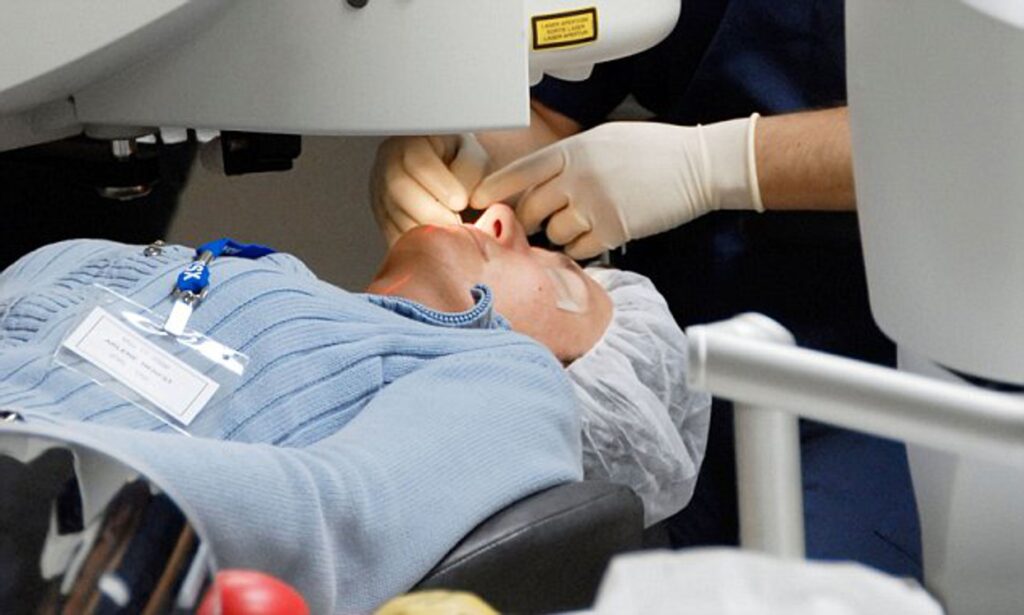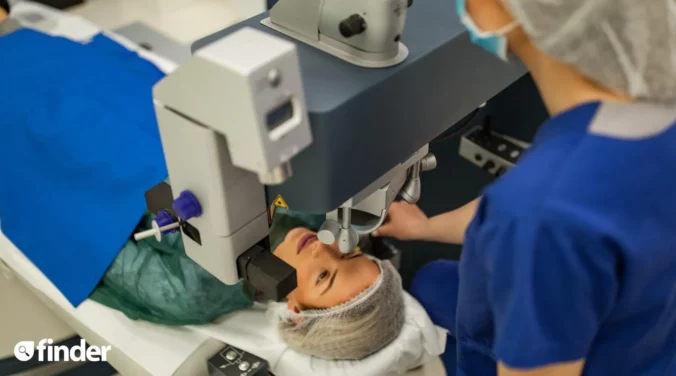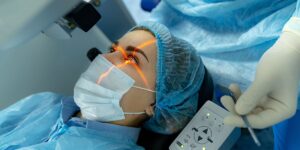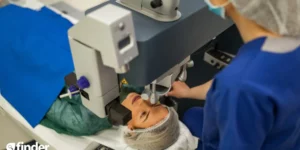Laser eye surgery is a popular procedure that can correct vision problems and reduce or eliminate the need for glasses or contact lenses. If you’re considering laser eye surgery in Sydney, this comprehensive guide will provide you with all the information you need to make an informed decision. From understanding the basics of laser eye surgery to preparing for the procedure and understanding the costs involved, we’ve got you covered.
Understanding Laser Eye Surgery
As you can see, laser eye surgery Sydney is an advanced and transformative procedure that can significantly improve your quality of life. By taking the time to understand the intricacies of the surgery, researching reputable clinics, and exploring financing options, you can embark on a journey towards clearer vision and reduced dependence on corrective eyewear. Remember, investing in your vision is an investment in your overall well-being. Schedule a consultation with a qualified surgeon today to explore your options and begin your path to better vision!
The Basics of Laser Eye Surgery
Laser eye surgery is a refractive procedure that reshapes the cornea, the clear front part of the eye, to improve vision. It is a safe and effective method for treating common vision problems such as nearsightedness, farsightedness, and astigmatism. The surgery itself is quick and painless, and most patients experience improved vision almost immediately.
Before undergoing laser eye surgery, patients typically undergo a comprehensive eye examination to determine their suitability for the procedure. This examination includes tests to measure the thickness of the cornea, the shape of the cornea, and the size of the pupil. These measurements help the surgeon customize the treatment plan to achieve the best possible outcome for each patient.

Types of Laser Eye Surgery
There are several types of laser eye surgery available, including LASIK, PRK, and LASEK. LASIK is the most common procedure and involves creating a flap in the cornea using a microkeratome or a femtosecond laser. PRK and LASEK are suitable for patients with thin or irregular corneas. Your surgeon will determine which procedure is best for your individual needs. Learn more about best laser eye surgery on: best Laser Eye Surgery options
During the LASIK procedure, the surgeon lifts the flap to access the underlying corneal tissue, then uses an excimer laser to reshape the cornea. The flap is then repositioned, acting as a natural bandage to promote healing. PRK and LASEK involve removing the outer layer of the cornea before reshaping it with the laser. While recovery may take longer with PRK and LASEK compared to LASIK, these procedures can be excellent alternatives for patients with specific corneal characteristics.
The Science Behind Laser Eye Surgery
Laser eye surgery works by reshaping the cornea to correct refractive errors. An excimer laser is used to precisely remove tissue from the cornea, allowing light to focus properly on the retina. This reshaping of the cornea corrects the refractive errors, resulting in clearer vision. The procedure is guided by advanced computer technology, ensuring accuracy and safety. To read more about computer technology click here.
Throughout the laser eye surgery procedure, eye-tracking technology is employed to monitor eye movements and ensure precise laser delivery. This technology adjusts the laser in real-time to account for any involuntary eye movements, enhancing the accuracy of the treatment. Additionally, wavefront technology may be used to create a detailed map of the eye, allowing for a customized treatment plan that addresses even subtle imperfections in the cornea.
Preparing for Laser Eye Surgery in Sydney
When considering laser eye surgery in Sydney, it’s essential to take the necessary steps to ensure a smooth and successful experience. From the initial consultation to selecting the right surgeon, each stage plays a crucial role in achieving optimal results.
Initial Consultation and Eye Examination
The first step in embarking on your laser eye surgery journey is scheduling an initial consultation with a qualified surgeon. This consultation serves as a pivotal moment where your surgeon conducts a thorough eye examination to evaluate your candidacy for the procedure. By assessing factors such as eye health, vision prescription, and corneal thickness, the surgeon can determine the most suitable treatment plan tailored to your unique needs.
Moreover, the initial consultation provides an opportunity for you to address any concerns or questions you may have regarding the surgery. It’s essential to communicate openly with your surgeon to ensure a clear understanding of the procedure and set realistic expectations for the outcome.
Pre-Surgery Guidelines
Prior to undergoing laser eye surgery, it is imperative to adhere to the pre-surgery guidelines provided by your surgeon. These guidelines may include discontinuing the use of contact lenses for a specified period before the surgery to ensure accurate measurements and optimal results. Additionally, following a healthy diet and staying hydrated can contribute to better eye health and overall well-being, enhancing the success of the procedure.
On the day of the surgery, arranging for transportation to and from the clinic is highly recommended. While laser eye surgery is a quick and relatively painless procedure, some patients may experience temporary blurred vision or discomfort immediately after. Having a trusted individual accompany you can offer support and reassurance during this transitional period.
Choosing the Right Surgeon
One of the most critical decisions you will make in your laser eye surgery journey is selecting the right surgeon to perform the procedure. When researching potential surgeons, look for qualifications such as board certification, extensive experience in refractive surgery, and a track record of successful outcomes. Requesting to see before and after photos of previous patients and reading testimonials can provide valuable insight into the surgeon’s skill and expertise.
Furthermore, don’t hesitate to inquire about the technology and techniques used by the surgeon, as advancements in laser technology have significantly improved the precision and safety of the procedure. By choosing a reputable and proficient surgeon, you can embark on your laser eye surgery with confidence, knowing that you are in capable hands.
The Laser Eye Surgery Procedure
Considering laser eye surgery? Here’s a detailed look at what to expect during the procedure. The laser eye surgery procedure typically takes less than 30 minutes and is performed under local anesthesia. After numbing your eyes with eye drops, the surgeon will create a thin flap on the surface of your cornea. The flap is then carefully lifted, and the excimer laser is used to reshape the cornea. This reshaping process aims to correct refractive errors such as nearsightedness, farsightedness, and astigmatism, ultimately improving your vision clarity. Read more about local anesthesia on https://pubmed.ncbi.nlm.nih.gov/20831923/
During the surgery, you may experience some pressure or mild discomfort, but rest assured that the procedure is designed to be as minimally invasive as possible. The excimer laser works with precision, reshaping the cornea to the exact specifications determined during your pre-operative consultations. Once the cornea is reshaped, the flap is repositioned, acting as a natural bandage that aids in the healing process.
Risks and Complications
While laser eye surgery is a safe and effective procedure for many individuals, it’s essential to be aware of potential risks and complications. These may include dry eyes, glare or halos around lights, and over or undercorrection of vision. Your surgeon will discuss these risks with you during your pre-operative consultations and will take steps to minimize the likelihood of experiencing them. It’s important to note that the vast majority of patients only experience minor side effects that typically subside within a few days or weeks following the surgery.
Post-Surgery Care and Recovery
After the surgery, your surgeon will provide you with detailed post-operative instructions tailored to your specific needs. Proper post-surgery care is crucial for promoting optimal healing and reducing the risk of complications. You may be prescribed medicated eye drops to prevent infection and aid in the healing process. Additionally, following a recommended schedule of follow-up appointments is vital for monitoring your progress and ensuring that your eyes are healing as expected.

Cost of Laser Eye Surgery in Sydney
Factors Influencing the Cost
When considering laser eye surgery in Sydney, it’s crucial to delve deeper into the factors that can influence the cost. Beyond the basic considerations like the type of procedure and the technology used, other factors may also play a role. These can include the reputation of the clinic in the community, the level of personalized care and attention provided, and the post-operative services offered. Understanding these nuances can give you a more comprehensive view of the overall cost and the quality of service you can expect.
Moreover, the geographical location of the clinic can impact the cost of laser eye surgery. In a bustling city like Sydney, where the cost of living is relatively high, medical procedures may come at a premium. However, this higher cost may also reflect the advanced technology and expertise available in metropolitan areas. It’s essential to weigh the cost against the benefits and conveniences offered by a city-based clinic to make an informed decision.
Financing and Insurance Options
While laser eye surgery is typically not covered by insurance in Sydney, there are various financing options available to make the procedure more accessible. Clinics may provide flexible payment plans tailored to suit different financial situations. Additionally, some institutions partner with financial providers to offer low-interest loans or other financing arrangements, easing the financial burden on patients. Exploring these options and discussing them with your surgeon can help you find a solution that aligns with your budget and preferences.










